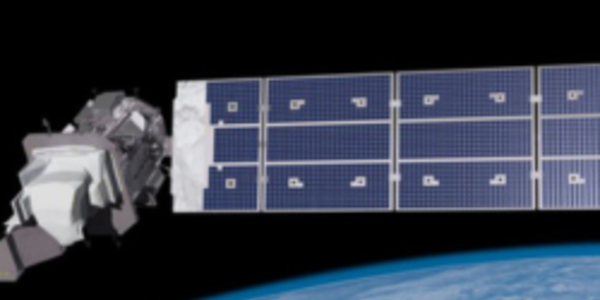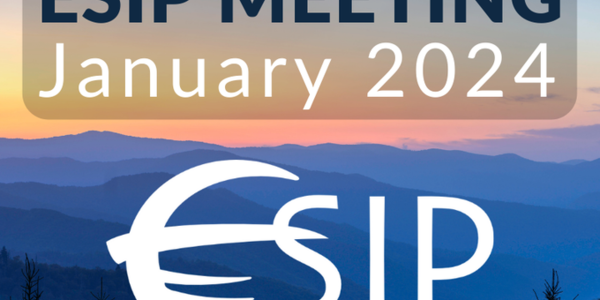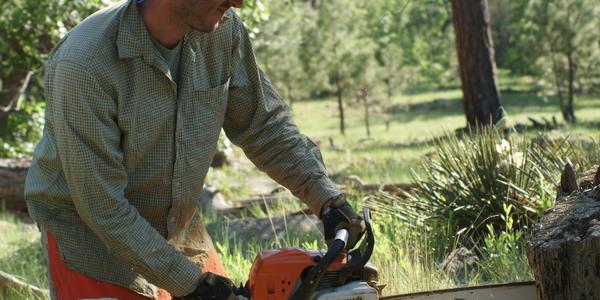NCEI supports early-career scientists through hands-on experience in science and technology

Each year NCEI hosts and mentors early-career scientists as they gain real experience in science and technology. This summer, 14 interns are supporting the work of NCEI in a wide range of topics—from analyzing ancient records of wildfires to supporting research on droughts. Keep reading to learn about our interns and the important work they are doing.
Research Experiences for Undergraduates
The Research Experiences for Undergraduates at the University of North Carolina Asheville (UNCA) is a summer-long internship bringing undergraduate students to Asheville, North Carolina, to support the climate research of UNCA faculty, climate scientists, and private-sector mentors. This summer, four students have come to Western North Carolina to support the creation of climate science tools and communications through a hybrid internship, working both remotely and in-person:
-
Catherine Johnson is a meteorology student at North Carolina State University. Johnson is working with social media statistics to look at defining the best methods for delivering NCEI content to the general public effectively.
-
Leo McNicholas is a statistics student at the University of North Carolina, Chapel Hill. McNicholas is supporting the development of a high-resolution greenspace index to support environmental health research.
-
Laurel Sparks is a environmental geosciences student at Georgia State University. Sparks is supporting the development of a high-resolution greenspace index to support environmental health research.
-
Ana Trueba is a meteorology student at the University of Oklahoma. Trueba is examining the delivery process of major climate research to media platforms.
Cooperative Institute Internships
Internships are arranged through several of our cooperative partner institutions including the Cooperative Institute for Satellite Earth System Studies, the Cooperative Institute for Research in Environmental Sciences at the University of Colorado Boulder, and the Northern Gulf Institute. This summer, seven students are working virtually through our cooperative partner institutions to contribute to the improvement of climate science tools and research:
-
Kelley DePolt is a geography masters student at East Carolina University. DePolt is supporting research on the compounding risk of drought and extreme heat events across the United States.
-
Kate Konrad is a statistics student at the University of North Carolina, Chapel Hill. Konrad is evaluating vegetation status in Earth system models using satellite climate data records.
-
Tyler Harrington is an atmospheric science PhD student at the University of Massachusetts, Lowell. Harrington is evaluating the effects of concurrent droughts and heat waves in the United States.
-
Nirav Patel is a computer science student at North Carolina State University. Patel is building web accessibility into the database of climate summaries in the Global Historical Climatology Network – Daily (GHCN – Daily) for its integration into the cloud through Amazon Web Services.
-
Katie Slyman is an applied mathematics student at the University of North Carolina, Chapel Hill. Slyman is evaluating the vegetation status in Earth system models using satellite climate data records.
-
Devan Walton is an oceanography student at the University of New Hampshire. Walton is building workable frontends for the Global Historical Climatology Network – Daily (GHCN - Daily)’s graph database and exploring smart tools for automated training of cypher querying for GHCN – Daily developers.
-
Shrikanth Yadav is an industrial engineering student at North Carolina State University. Yadav is examining how Billion-Dollar Weather and Climate Disasters affect the mental health of youths. He is also developing an R package for a new "nClimGrid analysis ready" data product targeting the health community.
Research Experience for Community College Students
The Research Experiences for Community College Students is a paid summer research internship program open to all Colorado community college students. The program allows students to have authentic environmental or geosciences research experiences at the University of Colorado, Boulder, and efficiently transition to a four-year program. This summer, one student is participating in the program at NCEI in a hybrid internship, working both remotely and in-person:
-
Janetta (Jae) Robinson is a science student at Red Rocks Community College. Robinson is exploring the possibility of using noisy magnetic data from the citizen science application CrowdMag to track space weather events.
Ernest F. Hollings Undergraduate Program
The Ernest F. Hollings Undergraduate Program is a scholarship and internship program that supports undergraduates in gaining practical experience in NOAA-related science, research, technology, policy, management, and education activities. This summer, one intern is participating in the program virtually at NCEI:
-
Daniel Groeneveld is a meteorology, math, and English student at the University of Oklahoma. Groeneveld is analyzing the relationship between paleofire records that serve as an archive of fire history through fire scars in the growth rings of trees, and paleoclimate reconstructions of precipitation.
William M. Lapenta Student Internship Program
The William M. Lapenta Student Internship Program is a paid summer internship for sophomore and junior undergraduate students and enrolled graduate students. The program supports work in areas that will provide robust research and/or operational experience that will prepare the student for further study in NOAA fields. This summer, one student is participating in this program virtually at NCEI:
-
Emiliy Speciale is a marine science, biochemistry, and molecular biology student at the University of Miami. Speciale is supporting fisheries acoustics research which uses active acoustics to understand fish populations.



